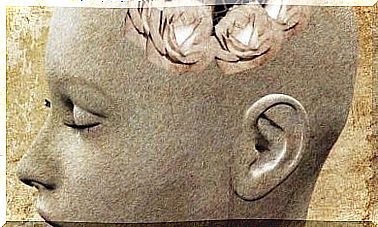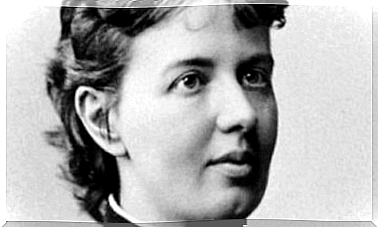What Is The Paradox Of Happiness And What Does It Do?

Happiness is one of the most used words in the world. In today’s culture, it represents the ultimate goal of many people. However, this was not always the case. In the past, the purpose of life had to do with virtue, progeny or property. In modern times, the paradox of happiness has taken over.
The paradox of happiness is that almost everyone wants to be happy. But if you ask someone what happiness is, almost no one can answer. If you go a little further and ask yourself why you want to be happy, the answer is probably not obvious. You would think the answer would be easy, given how eager you are to achieve your goal. Nothing could be further from the truth.
If you want to complicate your life even more, you can ask yourself a third question: how do you achieve happiness? There are many answers to this question, based on individual beliefs. Perhaps the most common answers are personal achievements, success and a happy marriage. However, it would be difficult to define in a concrete way how these things contribute to happiness, or what you expect to happen when you find that happiness.
In short , almost everyone is looking for happiness in these modern times, but most people don’t know what it is or why they want it. They also probably just have a vague idea of how to achieve it. This is the great paradox of happiness.

The paradox of happiness and discontent
dr. Iris B. Mauss, a professor at the University of Denver. conducted two studies on how the topic of happiness works in humans. The results of those studies are very disturbing, and they bring us closer to discovering exactly what the paradox of happiness is.
The first study examined an analysis of three aspects:
- The degree to which people considered happiness important.
- The external conditions in which the participants lived. Think, for example, of the social and professional position and the degree of satisfaction with the basic needs.
- The relationship between good external conditions and a sense of happiness.
As a result, people who highly valued happiness felt dissatisfied even when they had great external conditions in their lives. On the other, people who were more neutral or didn’t value the pursuit of happiness as much felt more satisfied.
This was the case even when their living conditions were more difficult. These conclusions clearly show the paradox of happiness.

Happiness and loneliness
Researchers conducted a second, similar study at the University of Denver. In this case , satisfaction was not measured, but rather how loneliness was experienced by those who valued happiness and those who did not.
The results were similar to the results of the first study. People who pursued happiness felt lonelier, while those who cared less about it did not. So they didn’t feel very lonely.
The first conclusion is that people who are actively seeking happiness focus a lot on themselves. Seeking success and satisfaction breaks ties with others. This reinforces a feeling of loneliness. Thus the paradox of happiness is reaffirmed.

The coordinates of happiness
These studies allow us to draw new conclusions. The first, and perhaps most important, is that external achievements are not in themselves a source of happiness. That’s why many people only experience a short-term sense of satisfaction when they’ve accomplished something they really wanted. Then they feel miserable, which causes them to set a goal again, and an infinite circle is created.
Happiness is therefore a process that takes place within us. It is a reality that has only partly to do with external performance. Perhaps many people tirelessly search for happiness with a secret desire to stop that endless discontent. They do not realize that the paradise they seek is within them.
On the other hand, we can conclude from the studies that the idealization of the concept of happiness only leads to frustration. Those who accept that happiness is only part of life are able to feel more satisfied.
A permanent state of happiness the goal is not the goal, because that is precisely what makes it non-existent. This allows us to accept reality as it is, and feel more satisfied.
What we vaguely refer to as happiness, that feeling of pleasure and satisfaction, is something that only happens occasionally. In any case , the decision to be the best version of ourselves will make happiness come to us naturally.









